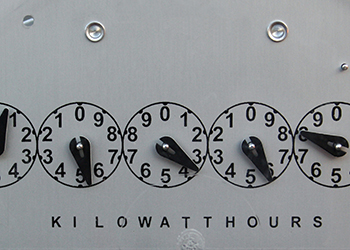Despite positive experiences with nutritional and vehicle miles-per-gallon labels, the U.S. has been slow to create the necessary components for similar efforts in residential energy performance. Recently, Earth Advantage (EA) has taken on this challenge by working with localities across the country to develop and implement tools that support voluntary residential energy scoring and disclosure efforts.

Now EAI is embarking on what Executive Director, David Heslam calls its “broadest and possibly most impactful project to date.” Working with industry stakeholders throughout the Pacific Northwest, EA will lead the development of consistent standards, methodologies, and criteria around voluntary residential energy scoring and disclosure in the region.
Funded by the Bullitt Foundation, Northwest Energy Efficiency Alliance (NEEA), and Washington State University Energy Program, the project will address the critical obstacles stymieing adoption of residential scoring and disclosure programs and policies. Through collaboration with the real estate, homebuilding, contracting, appraisal, and lending industries, the project will develop a policy “playbook” for the region. This “playbook” will highlight the necessary building blocks to successfully develop and implement voluntary energy scoring and disclosure, including detailing levels of professional standards, infrastructure needs, calculation methodologies, and outcome metrics for the region.
The “playbook” will serve as both the vision and the implementation guide to operationalize energy benchmarking and disclosure programs across the region. Anthony Roy, EA’s director, policy and partnerships, says the goal of the project is to create as much simplicity as possible out of a complex issue. Roy expects that “if it’s easier for consumers and industry professionals alike to understand energy scoring, it will gain greater market relevance.” And this will lead directly to capturing greater energy savings and carbon reduction across the region.
EA sees residential energy scoring and disclosure as having the potential to create a market that values energy efficiency, thus accelerating energy efficiency upgrades and reducing climate impacts from energy use. The project’s regionally collaborative approach solves numerous problems at once: it addresses a dearth of stakeholder-specific analyses, creates the conditions for greater agreement among key stakeholders, and provides an actionable playbook for driving voluntary programs towards innovative policy solutions in the Pacific Northwest.
The project will also provide local, state and regional policymakers with information about policy opportunities, energy efficiency outcomes, potential stakeholder benefits, and market impacts that will inform and support the creation of concrete future scoring and disclosure efforts. While EA’s approach will initially focus on the unique attributes of Washington and Oregon, Roy sees an opportunity for the outcomes of the project to be replicated in neighboring states, other geographic regions, and even nationally.